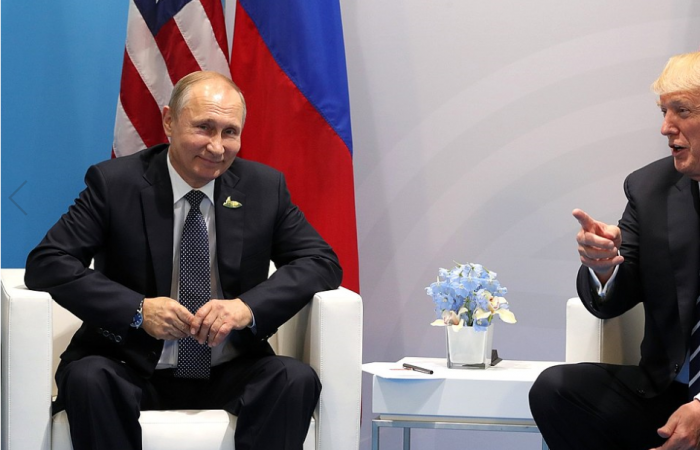It stinks at the top and it is trickling down into our society.
Alleged fraud and blatant attempts to steal the recent presidential election are a lightning rod for division in America. You can call it a coup, insurrection, or protest. You can call the participants protestors, anarchists, white supremacists, or patriots.
What you see depends on where you stand. In my book, Deep Dive, Existential Essays for Personal Transformation, I argue that everything is subjective.
If everything is subjective to every individual according to their life experience, perspective, information sources, and inherent biases, then, what may be true to me is not necessarily true to you, and vice versa.
If one side has a perspective that supports a certain narrative, then, they can easily find anomalies to support that narrative. This use of anomalies is a red herring, aka, a strategic communication tactic that supports a narrative and distracts from the truth.
President Trump, because he lost, says that there was widespread election fraud and the election results are therefore illegitimate.
The opposition, because their candidate appears to have won, says that there was no widespread election fraud and the election results are therefore legitimate.
People use an incidence of appearance of fraud, anomaly or not, from a verifiable source or not, to support their position. Then they employ the “if this, then that” tactic, otherwise known as conditional reasoning, to justify their position as factual (if this) when applied to the bigger picture (then that).
Another common phrase used to reference this thinking is the proverb, “if there is smoke, then there is fire.” Let’s use this proverb to analyze the accusation of fraud in the election.
An example of an anomaly, according to the left, is that there is no widespread voter fraud. To them, incidents of voter fraud are just an anomaly and nothing more.
The right sees the opposite. One incident of voter fraud provides the smoke; they use that as an example to support their theory that this smoke necessarily means that there is fire. Then, they share the “smoke” with other like-minded people. This creates lots more “smoke” and this serves to create the illusion of a fire.
Sharing the illusion of fire fans the flames of the “fire” to others with a similar agenda who reference the “fire” to further support the illusion. Then they say, “Look, lots of people are saying there is a fire, so there must be a fire!” And, therefore, we need to act immediately to put out the fire.
On January 6, 2020, Ted Cruz spoke on the Senate floor to his fellow Senators and the viewing public. He said, “39 percent of Americans believe that the recent election was rigged.”
Those 39 percent of Americans have heard a narrative, driven by President Trump through both mainstream and social media, that the election was rigged. That narrative was repeated often enough, that in their minds, it became the truth.
Essentially, using the metaphor, the match he lit became smoke and the flame was fanned to become a fire.
This distracts from the relevant issue of some alleged incidents (smoke) mean big problems (fire). This creates a false narrative.
If an incident means smoke and smoke necessarily means fire, then, in this case, putting out the fire means, invalidating the election results.
According to Ted Cruz, and the logic he uses, if 39 percent of the American people believe something, then it must be further investigated. This does not consider the multistep process already employed to determine the legitimacy of the results.
If the left is committed to supporting a free and fair process, open to objective (which is impossible if everything is subjective) investigations to eliminate fraudulent activity, then that smoke won’t become a fire.
If the right can accept that certain anomaly instances of fraud may exist, but that does not necessarily mean that there is widespread, results-affecting fraud, then they might not fan the flames of the smoke.
The problem is that this will never happen because neither side trusts the other and both have an opposing agenda. The left minimizes fraud as an anomaly and the right uses unsupported allegations to create the illusion of smoke as if it were a big fire.
The problem is that a conspiracy theory was alleged before the election even occurred, when President Trump used an incendiary, conditional reasoning strategy to proclaim, “If I lose, then it was rigged.”
This activated his followers to support and perpetuate the preemptive, false narrative of a rigged election.
The unfortunate consequence is that, according to Ted Cruz and his survey, “39 percent of Americans believe that it was rigged.” These false claims undermine our election and the legitimacy of our democracy.
If other democracies think that our democracy is illegitimate, then, using conditional reasoning: if ours is unfair, then how can others be fair?
The result is exactly what Vladimir Putin wants: the implosion of democracies by their own people.
He hacked our systems without any reprimand by President Trump and now they have effectively created chaos by encouraging millions of Americans to condemn a certified election outcome.
President Trump wants to win at all costs. He is trying to overturn the election through intimidation and the creation of false narratives that are based on anomalies and conspiracy theories.
If he somehow can win, then he doesn’t care how.
He incited a mob to march to the senate, illegally enter, and attempt an insurrection.
This is the existential dilemma for those on the right. Should they back him and his conspiracy theories and intimidation tactics? The stakes are high.
Is it worth pursuing a false narrative by using anomalies to try and overturn the election results, which would give them a victory if we then lose our democracy as a result?
Or, to put it another way, does President Trump care more about illicitly winning more than he cares about the integrity of our democracy?
What you see and smell depends on where you stand. Everything is subjective.
From what I see, it’s a sad time for democracy in America, when nearly half of our country believed a false narrative and were driven to storm the beacon of our democracy to overturn the results of the voters as determined by the elected body.
I see Putin laughing. It stinks. I want to unplug my nose soon.
I vote for the United States over him. Our democracy depends on it.
~
Breaking News: Donald Trump Has Been Impeached. Again!—Should we Rejoice Or Should we be Worried?


 Share on bsky
Share on bsky





Read 0 comments and reply